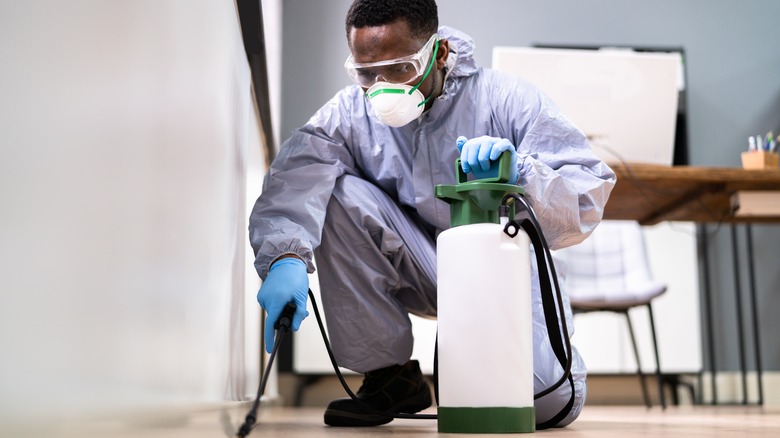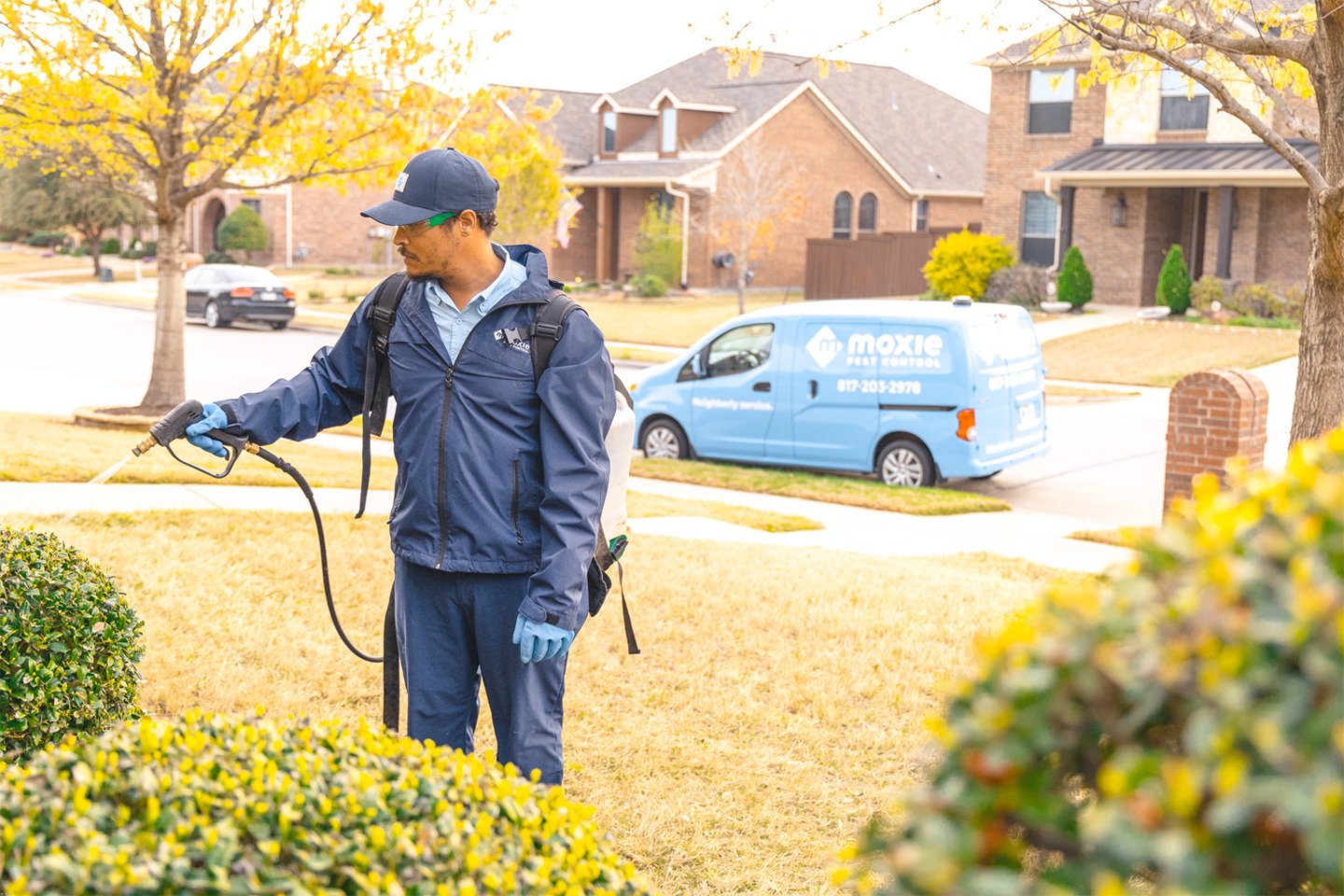Best Pest Control in Charlotte County for Your Home and Business
Best Pest Control in Charlotte County for Your Home and Business
Blog Article
Uncover the Value of Insect Control in Keeping a Healthy Setting and Therapy Strategies

The Role of Pests in Communities
Parasites, commonly watched only as annoyances, play a multifaceted role in ecosystems that is vital for keeping eco-friendly balance. They add dramatically to numerous environmental processes, including pollination, nutrition biking, and parasite control. For circumstances, numerous insect varieties, such as and butterflies, are necessary pollinators for a broad variety of plants, which in turn sustains biodiversity and food manufacturing.
Additionally, pests work as target for various predators, creating a crucial web link in food webs. This connection makes certain the survival of various types and helps regulate populaces within ecosystems (Termite treatment Port Charlotte). Moreover, decomposer parasites, such as specific beetles and fungi, are crucial in breaking down natural matter, therefore enhancing dirt and promoting nutrient recycling.
On the other hand, while parasites can be beneficial, their overpopulation or intrusion into non-native environments might disrupt these ecological features. This intricacy highlights the relevance of comprehending pest dynamics, as reliable pest management methods should take into consideration both their eco-friendly roles and potential influence on human activities. Stabilizing pest existence while decreasing injury is vital for maintaining the honesty of ecological communities and making certain farming productivity.
Health Threats Related To Parasites
The visibility of insects in numerous atmospheres prolongs past their ecological duties, as they likewise pose significant health dangers to animals and human beings. Many insects, consisting of parasites, rats, and pests, are carriers of illness that can have significant health and wellness ramifications. As an example, rats are recognized to transmit hantavirus and leptospirosis, both of which can result in serious respiratory and kidney problems, respectively.
Pests such as ticks and insects are infamous for spreading out vector-borne conditions like jungle fever, dengue high temperature, and Lyme disease. These diseases can cause high morbidity and mortality rates, particularly in vulnerable populations. Furthermore, parasites like insects and roaches can aggravate allergies and asthma, adding to respiratory problems in people, particularly those with pre-existing conditions.
In addition, the visibility of parasites can bring about psychological stress and anxiety and discomfort, impacting total health. Contamination of food and surface areas by insect droppings and stays can cause foodborne diseases, highlighting the relevance of maintaining hygienic problems. For that reason, recognizing the wellness risks connected with bugs is essential in acknowledging the necessity of efficient insect monitoring techniques to secure human and animal wellness.

Benefits of Reliable Bug Control
Reliable bug control is important for maintaining a healthy and balanced and secure environment, as it constantly minimizes the countless risks associated with pest invasions. Among the key advantages of effective pest monitoring is the decrease of carcinogen. Parasites such as insects, cockroaches, and rodents are vectors for illness that can affect both human beings and pets. By controlling these populaces, the probability of condition transmission is dramatically decreased.
In addition, reliable bug control safeguards property and structures from damages. Several parasites, like termites and carpenter ants, can cause comprehensive structural damage that might need pricey repair services. By proactively taking care of these invasions, home owners and companies can shield their financial investments.
One more substantial benefit is the improvement of total lifestyle. A pest-free environment adds to psychological well-being and reduces tension connected with invasions. In addition, efficient insect control fosters a more secure atmosphere for animals and youngsters, ensuring that homes stay sanctuaries complimentary from disease-causing microorganisms and harmful chemicals.
Typical Insect Control Strategies

In the world of parasite management, numerous techniques are used to fight problems efficiently. These techniques can be broadly categorized into 3 primary strategies: social, mechanical, and chemical controls.
Social control involves changing practices to decrease insect survival, reproduction, and establishment. This might include plant turning, correct cleanliness, and habitat control, which jointly develop an atmosphere less helpful to pest spreading.
Mechanical control utilizes physical approaches to eliminate parasites (Termite treatment Port Charlotte). Methods such as obstacles, vacuums, and catches are typically made use of to straight remove insects from an area. This technique is especially reliable for handling rodents and pests without using hazardous chemicals
Chemical control involves dig this the application of chemicals to take care of parasites. These materials can be categorized into fungicides, herbicides, and insecticides, each targeting specific sorts of pests. It is critical to use these chemicals judiciously, sticking to safety standards and guidelines to reduce potential damage to non-target species and the setting.
Each parasite control method has its limitations and advantages, and usually, an integrated technique combining numerous approaches produces the very best outcomes in preserving a pest-free setting.
Sustainable Insect Management Practices
Lasting bug monitoring techniques incorporate a range of approaches developed to reduce environmental influence while properly controlling pest populations. These methods prioritize making use of eco friendly methods over chemical pesticides, thereby decreasing the danger of harm to non-target varieties, including beneficial pests, wild animals, and humans.
Integrated Bug Monitoring (IPM) is a foundation of sustainable practices, integrating biological, cultural, mechanical, and chemical tactics to manage insects. Organic control includes presenting all-natural killers or bloodsuckers to reduce bug populations. Cultural practices, such as plant rotation and polyculture, interrupt pest life process and improve community durability.
Mechanical techniques, such as catches or barriers, can efficiently avoid insect access without chemical treatment. Additionally, preserving healthy communities through correct dirt management, plant health and wellness, and biodiversity can naturally reduce insect concerns.
Education and learning and recognition are essential components, equipping neighborhoods and people to acknowledge bug threats early and execute precautionary measures. Termite treatment Port Charlotte. By promoting an all natural approach that stabilizes insect control with ecological honesty, sustainable insect management practices not only shield crops and structures yet also add to a healthier atmosphere for future generations
Verdict

Understanding the health risks associated with insects is essential in identifying the requirement of effective parasite administration approaches to secure human and animal wellness.
Reliable insect control is essential for preserving a safe and healthy atmosphere, as it consistently reduces the countless threats associated with straight from the source pest infestations.Integrated Parasite Management (IPM) is a keystone of lasting practices, integrating organic, social, mechanical, and chemical strategies to handle insects. By recognizing the role of bugs, identifying connected health dangers, and employing diverse therapy strategies, a lasting strategy to pest monitoring can be accomplished. Integrated Insect Administration (IPM) stresses an alternative approach that minimizes damage to beneficial organisms while properly click here for more info regulating bug populations.
Report this page